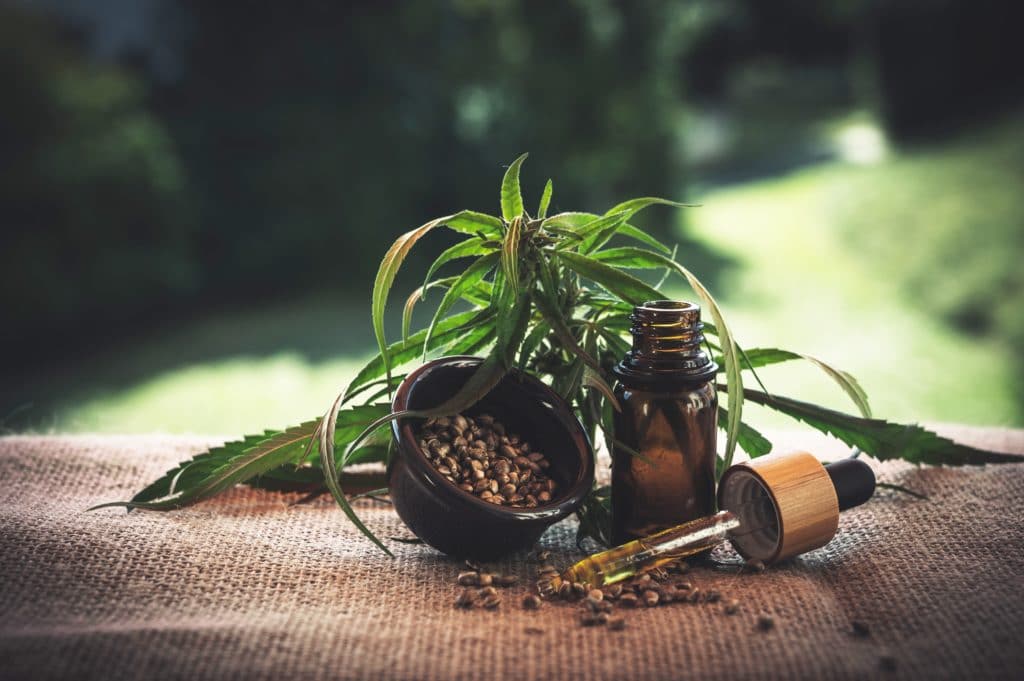Read time: 7:18 mins
Five more U.S. states just legalized cannabis – Arizona, Montana, New Jersey, and South Dakota are the 12th, 13th 14th and 15th states in the country to legalize recreational or adult-use cannabis. Mississippi and South Dakota also voted to legalize medicinal cannabis.
What does it mean to those of you who live there? You likely have many questions, especially if this is your first foray into cannabis. Read below for state-by-state information as well as answers to questions you may have:
Arizona
Once ballots are certified, which will likely be on or around December 3, 2020. Adults 21 and older may use recreational cannabis on private property (it will remain illegal to use cannabis in public places like restaurants, bars, parks, etc), possess up to one ounce of cannabis with no more than 5 grams being extracts (possession in public will be legal), and home cultivate, or grow, up to six plants per individual’s primary residence and 12 plants at a residence where two or more persons 21 or older live.
New Jersey
State lawmakers must still pass a bill governing the rules and regulations of the legal cannabis industry, and Gov. Phil Murphy, along with Assembly Speaker Craig Coughlin, must still name appointees to a Cannabis Regulatory Commission, which will oversee the industry.
Cannabis industry officials don’t expect the adult-use market to launch until the third or fourth quarter of 2021 at the earliest. Developing the regulations will take time, and Murphy has said it would probably take about a year before the first wave of retail sales begins. The state hasn’t determined how many licenses for growers and retail sites will be allowed.
Mississippi
The measure to legalize medicinal cannabis will become effective sometime in December, 30 days after the secretary of state declares the official election results.
The proposal will allow patients with debilitating medical issues to legally obtain marijuana after getting a doctor’s recommendation. It includes 22 qualifying conditions such as cancer, chronic pain and post-traumatic stress disorder, and patients would be allowed to possess up to 2.5 ounces of marijuana per 14-day period.
Under the approved initiative, the Mississippi Department of Health will be responsible for developing regulations for the program by July 1, 2021. Medical cannabis patient cards will need to be issued by August 15, 2021.
Montana
According to the Great Falls (Montana) Tribune, I-90, or the Montana Marijuana Regulation and Taxation Act, will go into effect no later than October 1, 2021, the deadline for the Department of Revenue to establish rules and regulations and begin accepting and issuing applications for dispensaries. However, a draft of a bill to repeal I-90 is already listed on the Montana Legislature website. The next state legislative session starts on January 4.
Once in effect, a person over the age of 21 will be allowed to possess up to 1 ounce of cannabis under the law. However, it may not may not be more than 8 grams (roughly 1/4 ounce) in concentrated form, or “any type of marijuana product consisting wholly or in part of the resin extracted from any part of the marijuana plant,” according to the ballot language.
A person will be able to grow up to four mature cannabis plants and four seedlings if:
- It is at a private residence
- Amounts of cannabis produced over 1 ounce must be kept in a locked space and not visible from a public place
- One owns the residence where the plants are being cultivated or obtains written permission from the owner
- A private residence where cannabis is grown for personal use is not shared, rented or leased by an adult-use provider
Restrictions include:
- Smoking or consuming cannabis products in public spaces, unless local jurisdictions designate specific places to do so.
- Operating a vehicle while under the influence of cannabis. This includes passengers in vehicles, as well as boats and aircraft.
- Employers still have the right to enforce workplace drug policies
- Local governments have the authority to adopt ordinances or regulations on commercial businesses, although they cannot be “unduly burdensome.”
- Advertising by licensed businesses is prohibited in any form, including social media. Businesses are allowed to have websites but may not “actively solicit consumers or out-of-state consumers through the website,” the measure reads.
South Dakota
In November 2020, South Dakota became the first state to legalize medical and recreational cannabis for adults in the same election.
The recreational measure, which is a constitutional amendment, will make it so people 21 and older will be able to possess and distribute up to one ounce of marijuana, and they will also be allowed to cultivate up to three cannabis plants. Upon formal passage, legalization will become the law on July 1, 2021. The Department of Revenue will be charged with developing dispensary licensing regulations by April 1, 2022.
The medical cannabis initiative will make a statutory change to allow patients suffering from debilitating conditions to possess and purchase up to three ounces of marijuana from a licensed dispensary. The state Department of Health will have until October 29, 2021 to enact regulations for the program and then must issue patient registration cards by November 18, 2021.
What’s the difference between recreational cannabis (adult-use) and medicinal cannabis?
Recreational cannabis typically contains a higher THC (Tetrahydrocannabinol) content than medical. This means people usually take this variety more for the “high” effect than the benefits. Medical cannabis usually contains a higher CBD (Cannabidiol) content than recreational. This means when you’re taking it, you don’t feel the “high” that’s associated with the recreational variety.
You need a recommendation for medical cannabis, and you need to have a qualifying condition to get a medical marijuana recommendation, and this must be renewed regularly. Qualifying conditions vary by state.
You don’t need a recommendation for recreational marijuana. You can go into any recreational dispensary and buy what you need if that’s legal in your state and you’re over the required minimum age (often 21). No medical card is required to buy the recreational variety.
You need to be over 18 to purchase medical cannabis from a dispensary. Although you must be 18 or over to buy medical cannabis for yourself, there are certain circumstances where people under 18 can apply for a medical cannabis card. These vary from state to state.
Isn’t CBD a form of cannabis? Is that already legal?
With the passage of the Hemp Farming Act of 2018, hemp products are essentially legal in all 50 states and Washington, D.C. CBD is a chemical compound found in both hemp and traditional cannabis plants. The primary difference between the two plants is that hemp lacks THC, the compound that produces the psychoactive effects in cannabis. To be classified as a hemp plant, it must contain less than 0.3% THC by volume.
The USDA will regulate hemp farming and the FDA regulates medicines derived from hemp along with CBD-infused food and beverage products. While you may be able to order hemp-based CBD products online or find them in retail stores, for the moment, this does not mean they are completely legal in the city or state where you live. This gray area of the law will clarify as time passes, but even now, the potential risk is most likely a minimal one, especially for topical products, cosmetics, balms, and lotions.
Where will I be able to buy cannabis?
If you’re in a state that just legalized cannabis, don’t expect cannabis products to appear on big box store shelves. Cannabis can only be sold in government-regulated stores called dispensaries. There are regulatory hurdles cannabis dispensaries must clear in order to open their doors to customers, and for good reason. Buying cannabis from a licensed dispensary is a way to ensure that it’s safe, tested, and tracked from seed to sale. Conversely, when you purchase cannabis from an illegal dispensary or delivery service, you have no idea about how or where it was grown, or who grew it.
If only medicinal cannabis is legal in your state, you will have to apply for a medicinal cannabis card in order to purchase from a medical cannabis dispensary. In order to get a medical cannabis prescription you will need to have a qualifying condition. Every state has its own list of qualifying medical marijuana conditions, some having a more restricted list than others.
If cannabis is legal in my state, can I fly or travel to another state with cannabis?
First, let’s address flying. Flying with traditional cannabis remains illegal at the federal level. This includes flying within a state or to another state that has legalized cannabis. Similarly, if your state has legalized cannabis and you travel by car or other means to a state that has not legalized cannabis, you are at the mercy of that state’s cannabis laws.
Cannabis laws and regulations are always evolving, so be sure to keep checking Three Wells to stay up to date and in the know on where your state stands.




